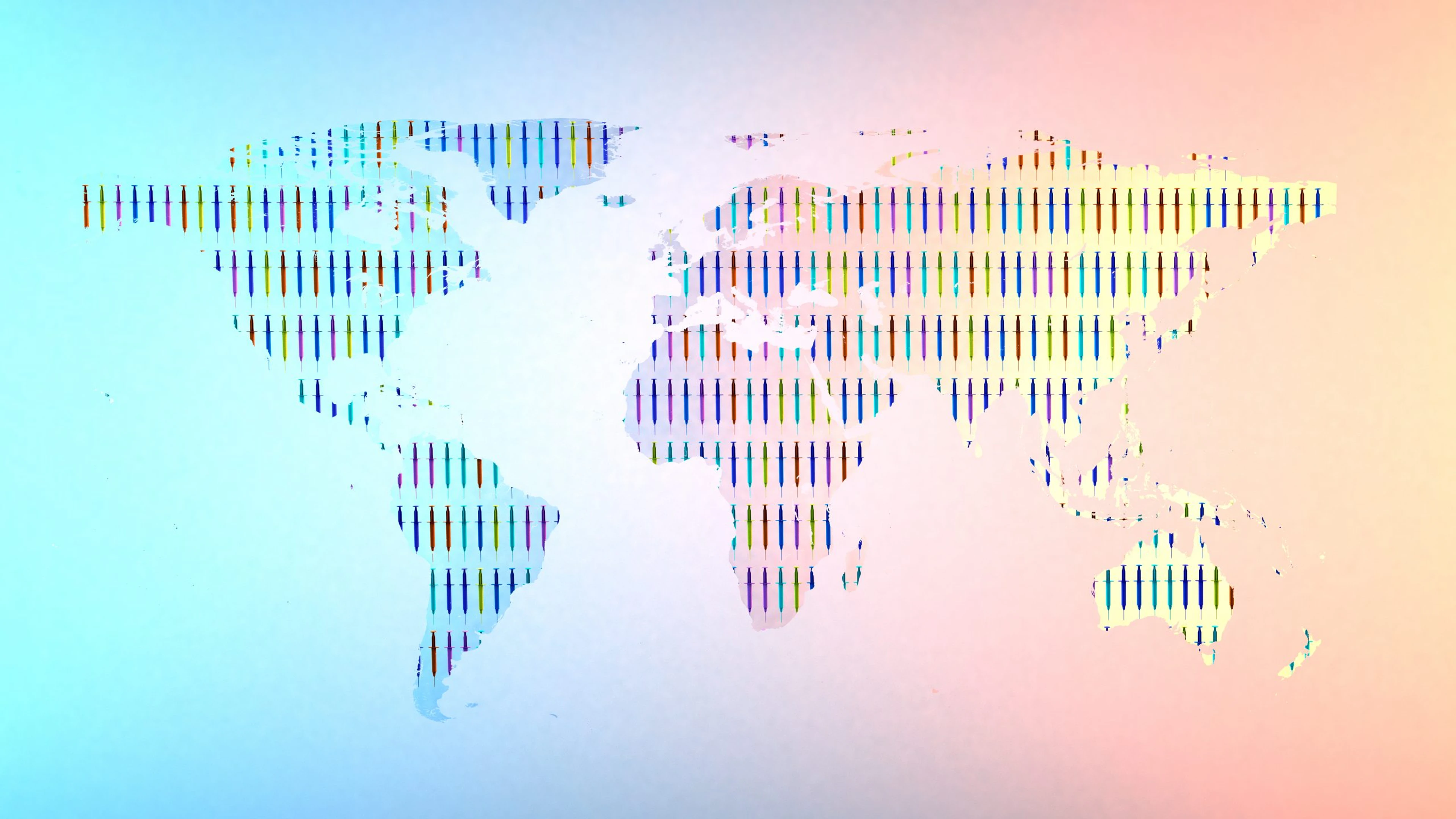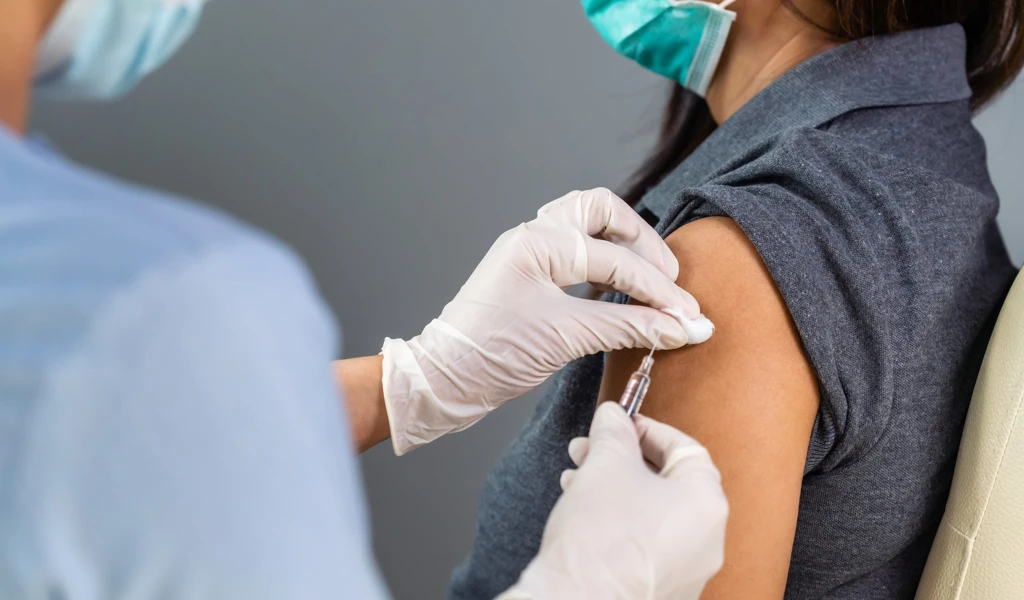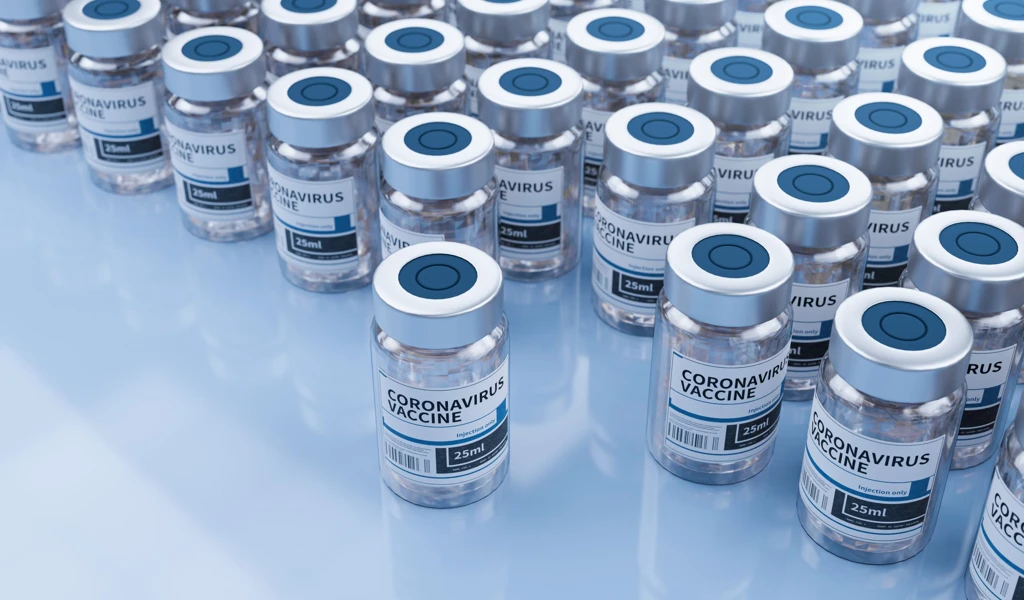University of Oxford's Prof. Dame Sarah Gilbert and ≥…»ÀVR ”∆µ's Dr. Richard Hatchett: "No one is safe, until we are all safe‚Äù

Share
Prof. Dame Sarah Gilbert, co-developer of the ChAdOx1 nCov-19 coronavirus vaccine, and Dr. Richard Hatchett, CEO of ≥…»ÀVR ”∆µ, (Coalition for Epidemic Preparedness Innovations), have today jointly authored a letter, published in , in which they call for urgent action to address the ongoing disparity in COVID-19 vaccination levels in low-income countries compared to high-income countries.
In this, they detail the current situation in regard to global COVID-19 vaccinations efforts (including through COVAX*), in the light of emerging SARS-CoV-2 variants, and discuss what is needed, in the coming months, to bring an end to the pandemic. They note the importance of the ongoing need for additional clinical trial data to aid global understanding on vaccine effectiveness and vaccine safety, while also providing further information on, for example, dose scheduling, to better guide immunisation strategies and allow for these life-saving vaccines to be optimised for use for maximum public health impact.
The letter also notes that, as COVID-19 vaccine dose supplies are set to ramp up in the coming months, attention must now be placed on in-country readiness efforts to ensure that COVAX recipient countries have the absorptive capacity to support delivery at scale.
From the start of the development of the vaccine here in Oxford, we knew that we'd need to make sure there was global access to vaccines. Commitments like our partner AstraZeneca's to work with many manufacturing partners and then supply the vaccine on a not-for-profit basis during the pandemic are a key part of this, but the development of multiple vaccines from different manufacturers is also needed.
It's encouraging to see that vaccine supply is becoming less of an issue, but no vaccine is effective until people have been vaccinated. There remain significant challenges, from transportation of a vaccine in a country – especially with vaccines that have to be kept ultra-cold – to intangibles such as the pervasiveness of vaccine hesitancy.
In countries where coronavirus infections are widespread, the benefit of vaccination is far greater than the risk of any rare side effects. Ensuring that these life-saving doses reach the people in danger is one of the most urgent challenges of the next phase of this global pandemic.
The rapid development, production, and deployment of multiple safe and effective COVID-19 vaccines has dramatically changed the dynamic of the global pandemic response: in many countries, life is returning to a ‘new normal' thanks to the protection afforded by the vaccines. However, while over 6.3 billion doses of these vaccines have been administered to date, equitable access to these life-saving tools remains woefully inadequate and must be urgently addressed.
The global community must step up to enable COVAX‚Äìwhich ≥…»ÀVR ”∆µ co-leads‚Äìand other distribution efforts to deliver desperately needed vaccines and bring balance to the global access picture. This includes increased support and investment in ongoing vaccine R&D efforts so that we can gather additional critical data to ensure our arsenal of COVID-19 vaccines are optimised for use against SARS-CoV-2 and its emerging strains. Research has revolutionised the way we fight against this unforgiving virus - we must once again turn to science to bring an end to this devastating crisis.
Read the letter in Science Translational Medicine:
ENDS
Notes to Editors:
For a copy of the paper, or to request an interview, please contact (note Prof. Gilbert is not available for interviews at this time):
University of Oxford Press Office
01865 280528
[email protected]
≥…»ÀVR ”∆µ Press Office
+44 7387 055214
[email protected]
Images of Prof. Dame Sarah Gilbert are available here:
NOTE: these must be credited © University of Oxford / John Cairns
Images of Dr Richard Hatchett are available
Credit:¬© ≥…»ÀVR ”∆µ
* COVAX, the vaccines pillar of the Access to COVID-19 Tools (ACT) Accelerator, is co-convened by ≥…»ÀVR ”∆µ, Gavi, the Vaccine Alliance Gavi) and the World Health Organization (WHO) ‚Äî working in partnership with UNICEF as key implementing partner, developed and developing country vaccine manufacturers, the World Bank, and others. It is the only global initiative that is working with governments and manufacturers to ensure COVID-19 vaccines are available worldwide to both higher-income and lower-income countries.
≥…»ÀVR ”∆µ is funding R&D programmes to provide additional clinical data on the performance of existing COVID-19 vaccines, while also advancing the next-generation of COVID-19 vaccine candidates. Through these efforts, ≥…»ÀVR ”∆µ is working to increase global supply and ultimately protect vulnerable populations worldwide. ≥…»ÀVR ”∆µ and its COVAX partners are also calling on donors and manufacturers to recommit their support and prevent further delays to equitable access through increased dose donations, and prioritising COVAX doses in COVID-19 vaccine manufacturing queues.
About the University of Oxford
Oxford University has been placed number 1 in the Times Higher Education World University Rankings for the fifth year running, and at the heart of this success is our ground-breaking research and innovation.
Oxford is world-famous for research excellence and home to some of the most talented people from across the globe. Our work helps the lives of millions, solving real-world problems through a huge network of partnerships and collaborations. The breadth and interdisciplinary nature of our research sparks imaginative and inventive insights and solutions.
Through its research commercialisation arm, Oxford University Innovation, Oxford is the highest university patent filer in the UK and is ranked first in the UK for university spinouts, having created more than 200 new companies since 1988. Over a third of these companies have been created in the past three years.
About ≥…»ÀVR ”∆µ
≥…»ÀVR ”∆µ is an innovative partnership between public, private, philanthropic, and civil organisations, launched at Davos in 2017, to develop vaccines against future epidemics. Prior to COVID-19 ≥…»ÀVR ”∆µ's work focused on developing vaccines against Ebola virus, Lassa virus, Middle East Respiratory Syndrome coronavirus, Nipah virus, Rift Valley Fever virus and Chikungunya virus ‚Äî it has over 20 vaccine candidates against these pathogens in development. ≥…»ÀVR ”∆µ has also invested in new platform technologies for rapid vaccine development against unknown pathogens (Disease X).
During the current pandemic, ≥…»ÀVR ”∆µ initiated multiple programmes to develop vaccines against SARS-CoV-2 and its variants with a focus on speed, scale and access. These programmes leverage the rapid response platforms previously developed by ≥…»ÀVR ”∆µ's partners prior to the emergence of COVID-19 as well as new collaborations. The aim is to advance clinical development of a diverse portfolio of safe and effective COVID-19 candidates and to enable fair allocation to these vaccines worldwide through COVAX.
≥…»ÀVR ”∆µ's 5-year plan lays out a $3.5 billion roadmap to compress vaccine development timelines to 100 days, develop a universal vaccine against COVID-19 and other Betacoronaviruses, and create a "library" of vaccine candidates for use against known and unknown pathogens. The plan is available at endpandemics.cepi.net.
Follow our news page for the latest updates. Follow us on and .


